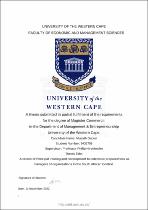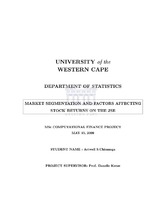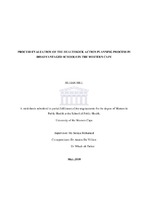| dc.description.abstract | Globally, public education systems are understood to be critical to the development of societies and provides an essential service for the public benefit. In order to do so effectively, there has been acceptance that effective schools need effective school leadership. In many school systems, this leadership rests on the shoulders of school principals, which raises the questions of whether school principals are indeed effective leaders, and how do we ensure that they are? Education is constantly evolving along several streams over time. Access to technology, diversification of societies, growing populations all contribute to the dynamism of education, which affects the way education is delivered, and how schools are led. The role of the principals is highly complex, and comes with several key responsibilities that needs to be delivered upon. In recognition that schools are organisations, and therefore require leadership and management in line with those organisational needs, then in order for schools to function effectively, they need effective leaders. | en_US |




